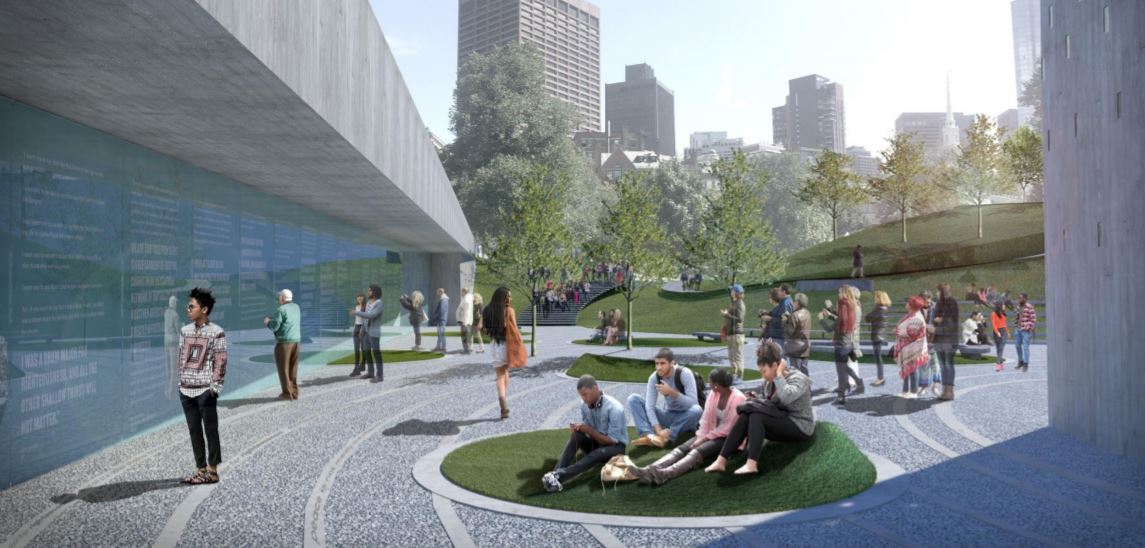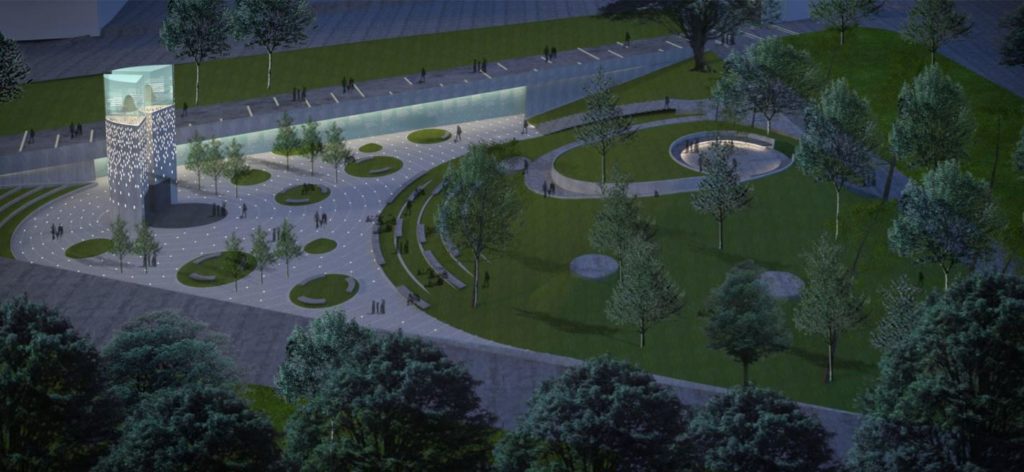By Jane Marks, news correspondent
In the search for a new Martin Luther King Jr. memorial, the MLK Boston Art Committee has chosen five teams that submitted proposals for the project.
While the team of artists, architects and scholars that will create the memorial have not yet been chosen, five teams have been narrowed from the original 126 applicants. The proposals are currently on display at the Boston Public Library where people have been encouraged to view the projects and leave comments.
“I appreciate that all five of the finalists took a more conceptual approach to the Kings’ legacy,” said Cheryl Knight, a public art specialist, who is part of the committee helping to pick the final monument.
Knight said while other monuments show the physical representation of the person, these proposals represent more of the intellectual teachings of King.
“What’s been nice is that there’s been kind of a deeper dive into the Kings’ legacy. We were not so interested in objects. It’s more about the experience of the object.”
Knight expects the committee will be able to decide on a winner by the end of the year. Community members will be able to leave their feedback on the projects until Oct. 16. Knight stressed that community involvement is an important part of the project and said the committee will take the public’s comments into consideration when making the final decision. Already, many have been eager to participate.
“You have to connect to it at at some level,” said Jacques Fleury, a Boston community member who spent more than 30 minutes leaving a detailed response to the potential projects. In Fleury’s opinion, the chosen memorial must have components that people from all walks of life can relate to.
“You have to have it connect the human experience,” Fleury said.
The five finalists rose to the occasion. Julian Bonder, a professor of architecture at Roger Williams University, is a member of one of the final teams.
“We think that all the projects require an ongoing community conversation and discussion and we would welcome that opportunity,” Bonder said. “What we tried to do is respond to the call.”

Bonder’s project, “The Ripple Effects,” has a range of components including a pair of towers that symbolize the impacts of both Martin Luther King Jr. and Coretta Scott King, creating a “living memorial” that is designed to be visited repeatedly by the community. While all of the teams plan to build in the Boston Commons, “The Ripple Effect” would be oriented close to the Statehouse.
No matter which proposal is chosen, the goal of each team is to have a current reminder of the importance of activism in today’s world.
“This political moment is so difficult for most of us,” Knight said. “I think it definitely put a sense of urgency on the project.”



![A demonstrator hoists a sign above their head that reads, "We [heart] our international students." Among the posters were some listing international scientists, while other protesters held American flags.](https://huntnewsnu.com/wp-content/uploads/2025/06/image12-1200x800.jpg)





